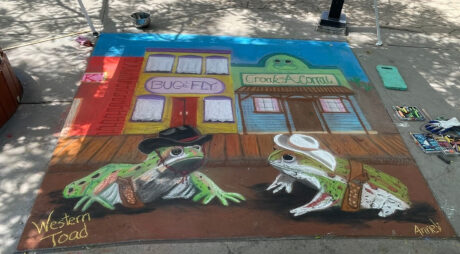Johnston: Education as a public good

Photo supplied
Adam JohnstonThrough childhood routines, my mother infused memories that have stayed vivid into adulthood. Walking up steep steps to St. Philip Catholic Church’s massive wooden doors, we’d move across a threshold separating the sanctuary from traffic noise and the rainy morning left behind. Dipping fingers in holy water, I made the switch from the everyday to a space of reverence and quiet reflection. My family filed our way to a pew toward the front.
To my mother’s chagrin, I don’t do these weekly churchgoing rituals in adult life. But I do frequently walk up steps and enter the wide doors of schools. It’s not religious by any means, but the routine feels similar, spiritual even. Entering a school building, I feel that same transition as I cross the boundary between everything that happens outside and the hallowed setting within this building arrayed with bubbling classrooms, a vibrant cafetorium, hallways displaying the beautiful essays and artwork of second graders. Entering, I change my posture, inward and outward. Instead of dipping fingers in holy water, I sign in at the front desk and verify my identification.
My personal connection probably isn’t relatable for everyone, but I do commit to the claim that schools are sacred spaces. Education — whether in public school buildings or private settings, within new or old structures, broad or narrow in scope — is an inspired investment of humanity and a vital thread in our societal fabric. We’ve put a lot of thought and creativity into the invention of education, so easy to take for granted. Schools seem to simply exist right down the street from where we live, facilities we regularly send our children to. They are places where we start to understand something about adding quantities, where we’ve come from, how to read these words and maybe even how to get along with one another. We decided this is important; then we had to see it through.
We send ourselves to schools, preschool through graduate studies, certainly so that we can individually become better, more knowledgeable about all things and perhaps more ready for life and jobs. For such, schools are important and valuable in ways that no other invention is. But this isn’t why I think we need schools, now more than any other moment. Our education system is critical not just for individuals but for a collective whole. This may not seem controversial until we realize we’ve also chosen to erode this prospect. Over the past couple of decades, our universities have been funded less by the state and more by individuals. (According to the Gardner Policy Institute at the University of Utah, the proportion of expenditures financed from state tax fund revenue fell from nearly three quarters to about half among Utah’s degree-granting institutions.) Initiatives focused on school choice view education as a personal asset rather than a public good.
We make these decisions together and deliberately, as our public education system is governed by the state via our legislators. There are potential models and examples, including those inspired by other public endeavors we value. We all pay for the roads that others drive on to make communities cohesive. Our water system is integrated into public works to concentrate efforts and make access equitable. Instead of contracting diverse emergency services individually, we’ve decided that 911 is available to all. It’s efficient this way, and it acknowledges that we, collectively, value taking care of one another.
And so it is with schools. I don’t teach classes full of pre-med students so much for each to become a doctor as much as I want to ensure we have a health care system. Engineering programs allow pathways for individuals to become employed problem solvers, but even more to ensure we solve problems as a community. We make sure each person can read and write not only so that they can better themselves, but so that we can all participate in and maintain a vibrant, democratic society.
As I work in schools and with teachers in the new year, I’m reminded of the importance of this system and our collective commitment to it. Entering a church of my youth provided a moment of pause and a sense of how to save my individual soul. Entering schools with the same reverence, I reflect upon the soul of our society. We invest in education so that we, together, are better.
Adam Johnston is a professor of physics and director of the Center for Science and Mathematics Education at Weber State University, where he helps prepare future teachers and supports educators throughout Utah.



